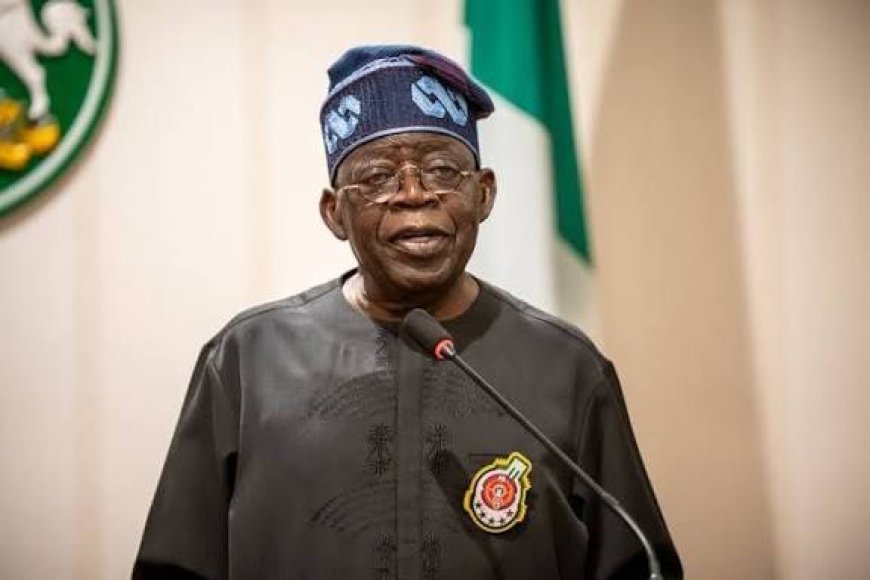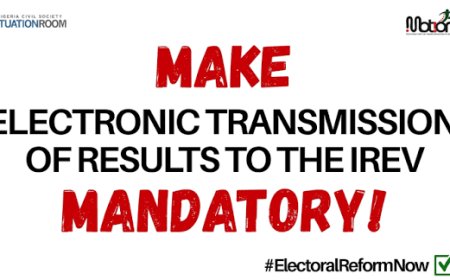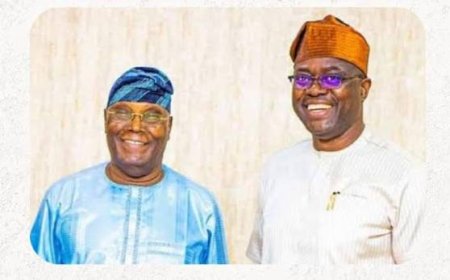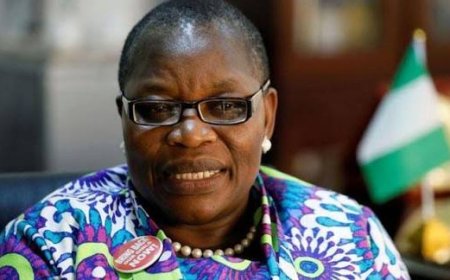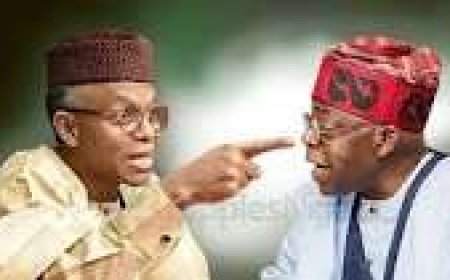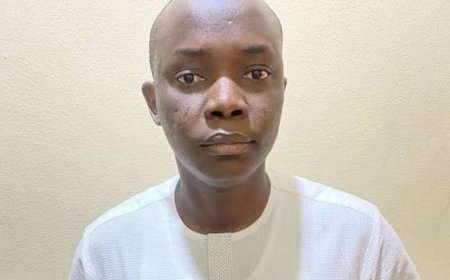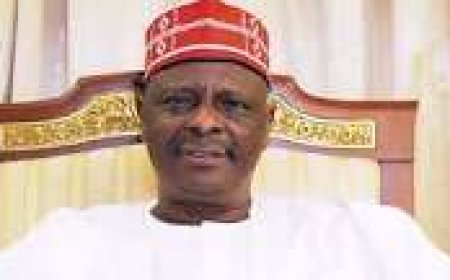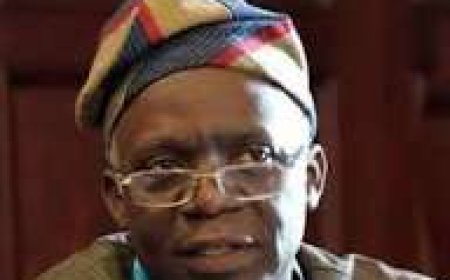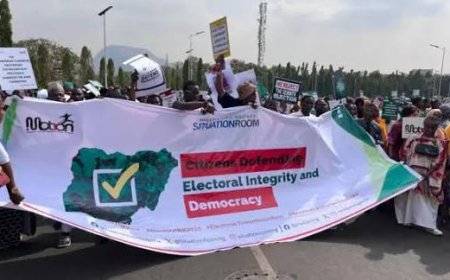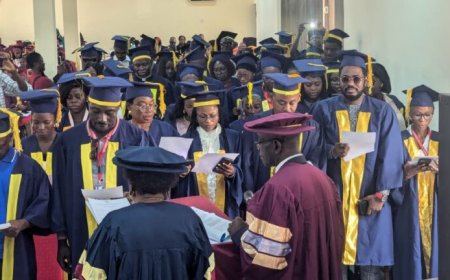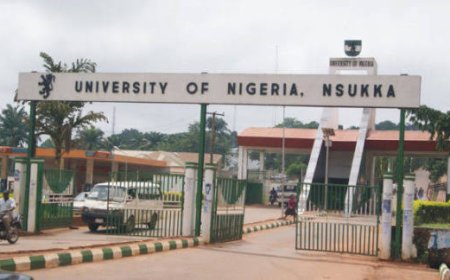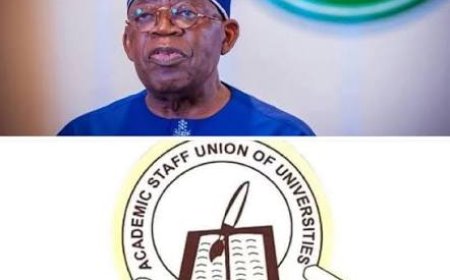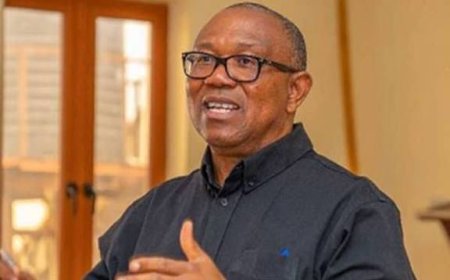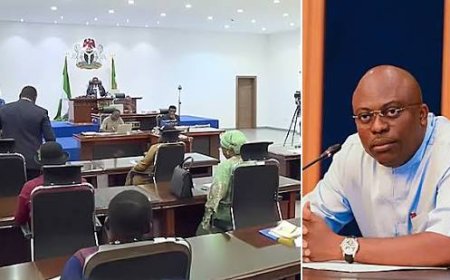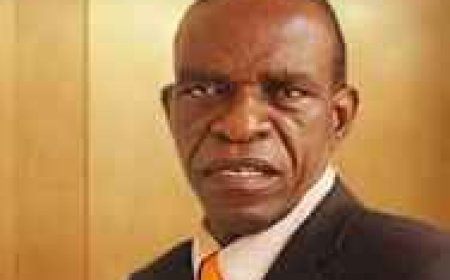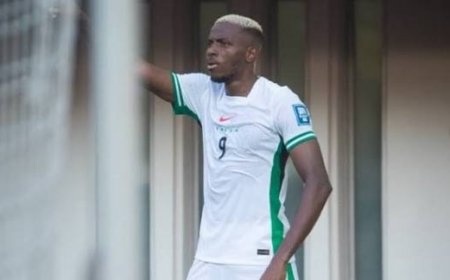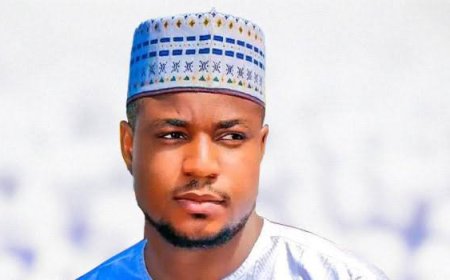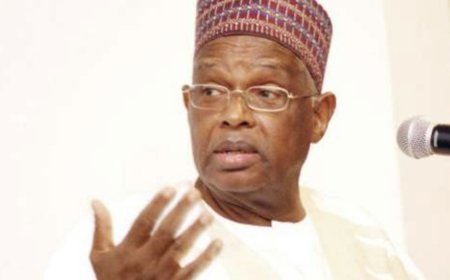When President Bola Ahmed Tinubu reassured Nigerian youths on the 2025 Independence Day that his administration would “continue to give you wings to fly,” he drew upon a time-honoured rhetorical resource that has coursed through African political speechmaking - the metaphor of wings and flight paths. To the casual listener, it sounded like a mere rhetorical flourish, a lyrical embellishment to inspire hope. But if we pause and situate the statement within the conceptual metaphor framework advanced by George Lakoff and Mark Johnson in Metaphors We Live By (1980), the statement becomes not just a poetic gesture, but a conceptual lens for understanding the relationship between state and citizen.
The metaphor “youths are birds” or “dreams are flights” suggests that young people are destined for transcendence, for upward movement, for journeys beyond the ordinary. To be given wings is to be enabled, to be freed from the gravitational pull of poverty, unemployment, and despair. The flight image also evokes mobility - economic, social, technological, and creative. In an aspirational sense, the sky becomes the limit, and leadership positions itself as the enabler, the one who equips young people with the instruments of ascension.
Yet, in African political rhetoric, this metaphor has often been double-edged. Julius Nyerere of Tanzania once spoke of giving his people “the wings of literacy to soar into modernity.” Kwame Nkrumah similarly proclaimed that independence would give Ghanaians “the wings of freedom to chart their destiny.” These soaring promises electrified their audiences, but history also records that many wings were clipped by corruption, authoritarianism, or economic collapse. In this way, the flight metaphor often dramatizes both possibility and peril.
Nigeria itself has lived through this paradox. The military regimes of the late 20th century often described education as a “ladder of flight,” but their policies underfunded universities, leaving students stranded on the rungs. In 2017, former President Muhammadu Buhari sparked outrage when he dismissed Nigerian youths as “lazy” despite their evident energy in fin-tech, music, and entrepreneurship. In one stroke, he grounded their metaphorical flight, denying them the wings of recognition. Against that backdrop, Tinubu’s rhetorical shift matters. To say “we will give you wings to fly” restores dignity, acknowledges agency, and positions the youth as central to Nigeria’s future.
However, the metaphor must not remain in the realm of rhetoric. For wings without fuel remain ornamental. In the existential reality of young Nigerians, wings are powered by quality education, by access to credit, by platforms for innovation, by mental and physical health support. Here, Tinubu’s policy slate, from NELFUND education loans, to CreditCorp access, to YouthCred, iDICE, Pi-CNG, YEIDEP, LEEP, and the Yo! Health initiative, serves as the aviation fuel that can make the metaphorical flight a tangible reality.
Beyond Nigeria, the flight metaphor also reminds us of its darker flipside when neglected. In Kenya, youth protests in 2024, sparked by tax burdens and broken promises, were often described in local media as “a generation that has taken flight against the state.” In Madagascar’s ongoing turmoil, young protesters speak of “breaking free” from a system that grounds their aspirations. Flight, when denied, becomes rebellion. Thus, Tinubu’s words sit within a long African tradition of leaders evoking wings and flight to mobilize hope. The question is whether Nigeria will break from history by turning metaphor into mechanism, promise into practice. To “give youths wings to fly” is not merely to inspire, but to provide the real instruments of empowerment. For without substance, rhetoric becomes a cruel joke; but with substance, it becomes the takeoff runway to a new national horizon.
History, as the philosopher George Santayana warned, condemns those who fail to learn from it to repeat its errors. Across nations and centuries, one lesson recurs with striking regularity. When governments underestimate, neglect, or patronize the youth, the price is always steep. The 1968 Paris student uprising, the Arab Spring that swept across North Africa and the Middle East, and more recently the youth-led uprisings in Kenya, Nepal, and Madagascar all tell a story. That story is simple; youthful energy, when excluded from the structures of opportunity, does not vanish; it erupts.
Against this historical backdrop, President Bola Ahmed Tinubu, in his 65th Independence Day broadcast, struck a resonant note by acknowledging Nigeria’s youth as the nation’s “greatest assets.” His words were deliberate, uplifting, and reassuring: “You must continue to dream big, innovate, and conquer more territories in your various fields of science, technology, sports, and the art and creative sector. Our administration, through policies and funding, will continue to give you wings to fly sky-high.” These words matter. They matter because Nigeria is a youthful country. Two-thirds of its population under 30 - and their dreams, frustrations, and ambitions shape the destiny of this vast republic. They matter because, for decades, Nigerian leaders have mouthed platitudes about “leaders of tomorrow” while mortgaging that tomorrow on the altar of corruption and mismanagement. They matter also because the youth demographic has become increasingly restless, impatient with rhetoric, and skeptical of promises that rarely materialize.
Nigeria has walked this road before. Lofty promises, youth-centered initiatives, and rhetorical flourishes have characterized successive administrations. Yet, the outcomes often fell short, undermined by corruption, elite capture, or the widening gap between conception and execution. In 2017, Nigerians recoiled when a sitting president, in a foreign forum, dismissed the youth as “lazy.” It was a statement that betrayed not just insensitivity but ignorance of the digital economy revolution, Nollywood’s global reach, and Afrobeats’ world dominance, all spearheaded by Nigerian youth. Ironically, the world celebrates what Nigeria underappreciates. The fintech innovations of Nigerians in Silicon Valley, the creative energy of its diaspora, and the entrepreneurial resilience of its youth show that the supposed “laziness” was a political mirage.
But patience has limits. The #EndSARS protests of 2020 revealed the pent-up frustrations of a generation. That movement, sparked by police brutality, grew into a larger statement against systemic failures. In 2024, the #EndBadGovernance protests carried the message further. This generation cannot be placated by rhetoric; it demands accountability, opportunity, and justice. The cautionary tale is global. In Kenya last year, Gen Z protestors shook the establishment, forcing leaders to reckon with corruption and youth unemployment. In Nepal, Abiskar Raut’s fiery speech ignited a revolution. And in Madagascar today, Gen Z-led protests are disrupting the fragile order of the island nation, demonstrating that youth discontent, when ignored, metastasizes into political earthquakes. For Nigeria, the turmoil in Madagascar is not a distant spectacle but a mirror. The same ingredients of joblessness, exclusion, and frustration exist here - on a grander scale.
Yet, it would be unfair to dismiss Tinubu’s administration as one of empty rhetoric. In truth, his government has rolled out some of the most robust youth-focused initiatives in recent years. They are Education Loans through NELFUND, Access to Affordable Credit - CreditCorp Loans, Support for Corps Members – YouthCred, Opportunities in Tech and Creative Industries—iDICE (Investment in Digital and Creative Enterprise), Distribution of 2,000 CNG-Powered Tricycles -Pi-CNG Initiative, Youth Agro-Entrepreneurship Programme (YEIDEP), Labour Employment and Empowerment Programme (LEEP), and Yo! Health Initiative. If properly implemented and scaled, these programmes could transform youthful restlessness into productive engagement. Collectively, these initiatives sketch a picture of intentional governance. They reveal that Tinubu is not oblivious to the demographic challenge of Nigeria’s youth. On paper, his administration is laying down the runway for the “wings” he promised.
The danger, however, is that Nigeria’s past is littered with well-conceived programmes that died in infancy or became pipelines of patronage. The real test lies not in the articulation of youth-friendly policies but in their transparent, inclusive, and scalable execution. The key pitfalls to avoid include but not limited to elite capture, bureaucratic bottlenecks, lack of monitoring and evaluation, and exclusion of youth voices.
Let’s turn to the philosophical and sociological imperatives of lending President Tinubu’s ‘winging’ metaphor the requisite functionality to chart discernible flight paths. Philosophically, the youth embody Nigeria’s “potentiality actualized.” They are the promise of what the nation can become if given wings and skies. Sociologist Karl Mannheim described each generation as bringing a “fresh contact” with reality, new eyes, unjaded perspectives, and bold imaginations. To sideline them is to mortgage renewal. Nigeria cannot afford to repeat the tragic cycle where every administration serenades the youth, only to abandon them midway. The youth demographic is not a problem to be managed but a force to be harnessed. It is the very dynamism of the nation.
The turmoil in Madagascar is not just a story for foreign correspondents; it is a warning siren for Nigeria. There, disillusioned youths turned streets into battlefields, shaking governance at its core. Their grievances mirror those of Nigerian youths - unemployment, exclusion, lack of trust in leaders, and poverty. What is unfolding in Antananarivo could unfold in Abuja or Lagos if Nigeria fails to act. The resilience of Nigerian youth, often romanticized, is not infinite. As with Madagascar, a tipping point exists when patience snaps and defiance replaces endurance. The lesson is unambiguous; promises must translate into palpable change before discontent spirals out of control.
In conclusion, President Tinubu deserves commendation for recognizing the centrality of Nigerian youth and rolling out robust initiatives to empower them. From NELFUND’s education loans to CreditCorp’s affordable credit, from iDICE’s creative empowerment to Yo! Health’s holistic welfare plan, the administration is charting paths that could, if faithfully implemented, give Nigerian youth not only wings but also the skies to fly. Nonetheless, the work is far from complete. What is needed now is a ruthless commitment to execution, a transparent framework that ensures beneficiaries are genuine, and a deliberate culture of inclusion, where young people help shape the policies that affect them.
In the end, history will not judge Tinubu by the melody of his promises but by the symphony of his performance. To inspire is good; to deliver is essential. Nigeria’s youth have been promised wings. It is time to provide the flight paths. If Tinubu stays the course, translating policy into practical reality, he may yet be remembered as the president, who not only gave Nigerian youth wings but also cleared the skies for them to soar. If not, Nigeria risks the path of Madagascar, where neglected youth turned hope into fury. God forbid; yes, God will forbid a repeat of the Nepali experience if and only if President Tinubu’s administration resolves to ‘stitch in time,’ in order to ‘save nine’. There is no gainsaying the fact that Asiwaju, the Jagaban has the gut, grit, and gravitas to pull the strings and stop the ship of state from getting caught up by youth-propelled tsunami. After all, as a veteran of battles, Asiwaju, like the ‘agadi nwwaanyị,’ as the Igbo say, ‘anaghị aka nka n’egwu ọ mara agba;’ (the old woman is never too old to rewind the dancing steps of her favourite music).
